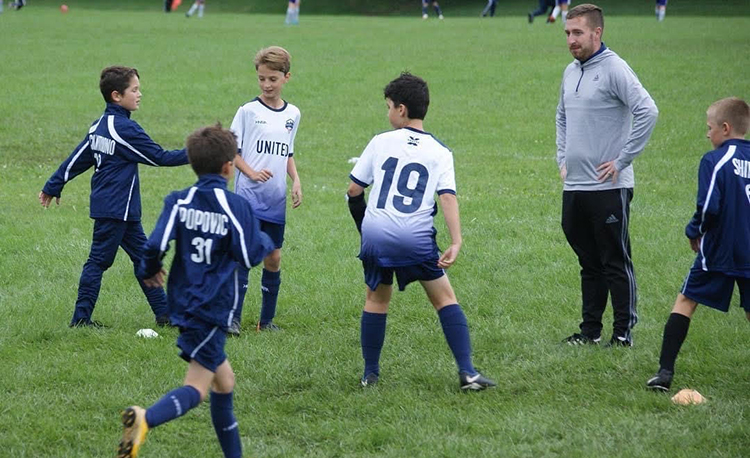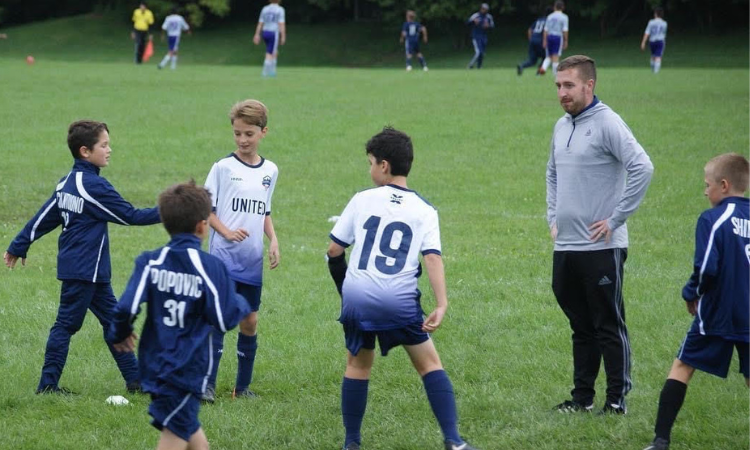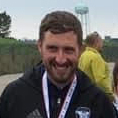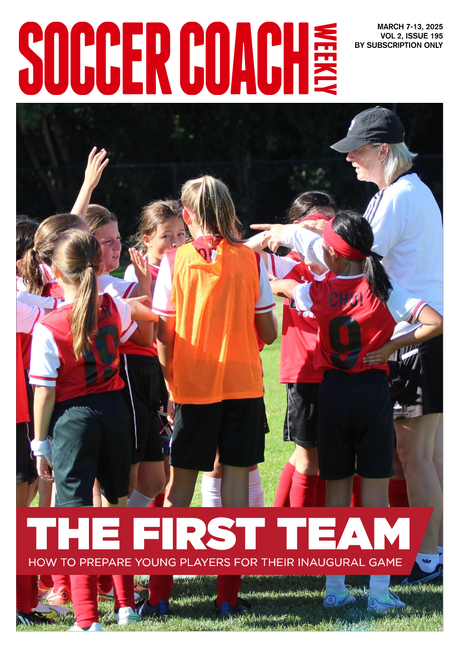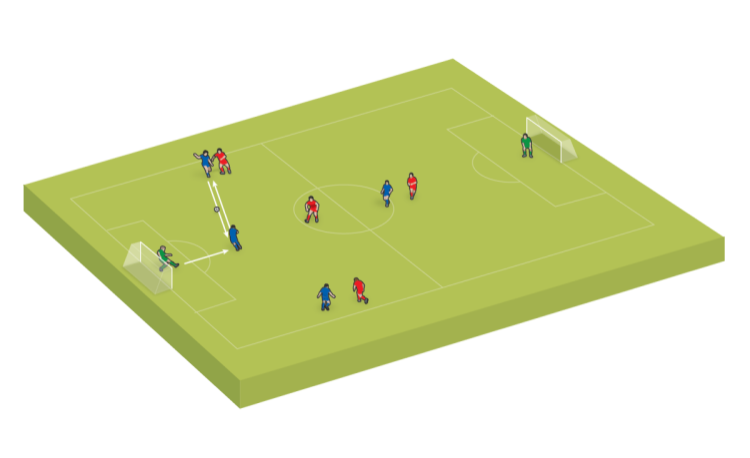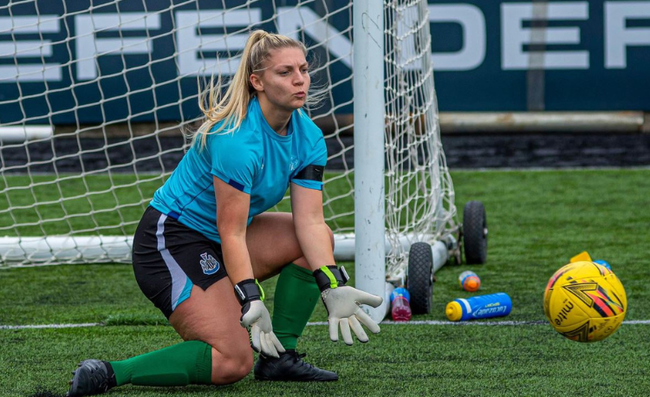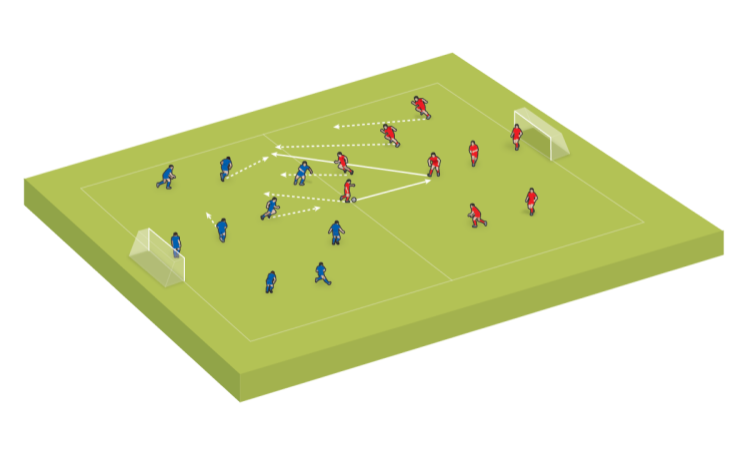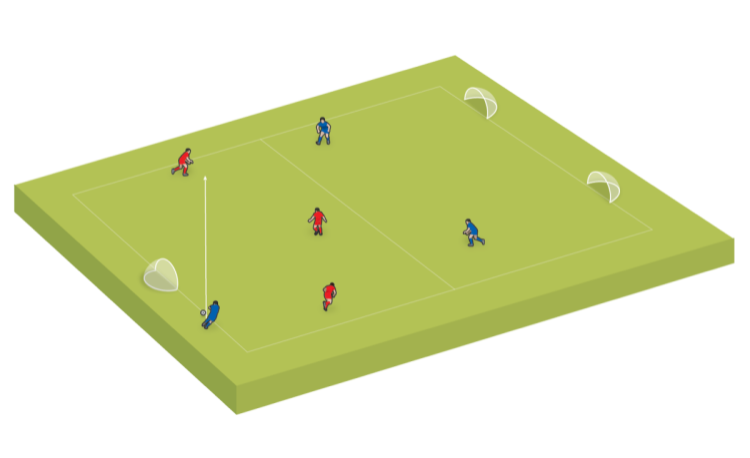'Showing you care is the biggest thing'
Chicago-based youth coach DEAN ARROWSMITH tells STEPH FAIRBAIRN about the mental health campaign he founded and how coaches can support each other
Dean Arrowsmith is director of coaching of the United and Extra programs at the American Youth Soccer Organisation’s Region 300 in Chicago.
He moved to the US permanently seven years ago to take up a full-time role in soccer, having gained much of his experience back in Dundalk, Ireland.
Alongside AYSO, he also has another very important role: co-founder and chairperson of Head In The Game, a mental health campaign aiming to start a conversation for those involved in the League of Ireland.
In the two years since its inception, Head In The Game has made a big impact, offering a safe space for coaches that may be struggling with their mental health.
Dean himself has been affected by self-confidence issues and imposter syndrome when on a Uefa B course at the age of 21.
SCW caught up with Dean to discuss the work Head in the Game does, the pressures coaches face, and tools for coping with them.
Please note: this article contains references to suicide, from the start.
SCW: Can you tell us a bit more about Head In The Game and your involvement?
DA: “I lost an uncle to suicide in 2017. Since then, I’ve been advocating for mental health and, more specifically, men’s mental health.
"Dundalk FC’s videographer [Harry Taaffe] committed suicide in July 2020. It’s actually coming up to his anniversary at the end of next week.
"If you’re struggling with your mental health, it’s never a quick fix. As I’ve learned, over the last two years especially, it’s a rollercoaster. You have high moments where you’re feeling great, you have low moments where you feel really down.
“In a group chat with a couple of supporters of Dundalk, the day after Harry passed, I said something had to be done.
"That’s how Head In The Game was born - it was myself and five other lads from Dundalk. We are just supporters - none of us are clinicians or psychologists.
"I wrote a poem called The Floodlights which was one of the first things that went out for Head In The Game.
"The day we released it, I had to go and do a 10-mile run, because I didn’t want to look at social media when it went up - I didn’t know how people were going to react.
"If you’re struggling with your mental health, it’s no quick fix - it’s a rollercoaster..."
"It had 250,000 views within the first 48 hours, so it resonated with a lot of people. For me, that was a sign that we were on the right track.
“Initially our idea was centred around men’s mental health. But there’s such a big push on the women’s game, we have to make sure we’re inclusive.
"It’s not just about players. We want to be inclusive of supporters, players, coaches, referees - anyone involved in our sport.
“The way that it’s grown within the football community and the goodwill we have received is just absolutely phenomenal.
“Head In The Game isn’t going to take credit for this, but you’re seeing a lot more footballers starting to talk openly about their mental health.
"You’re [also] seeing coaches talk about mental health. I heard [West Ham United manager] David Moyes on a podcast recently talk very openly about his mental health.
"That is probably what sparked my interest on the coach’s side of mental health.”
SCW: What pressures are on coaches that can lead to mental health struggles?
DA: "About a month ago, I surveyed around 100 coaches about burnout and the impact on their mental health.
"At grassroots, every coach said parents are a massive factor in the negative impact on their mental health.
“At a higher level, I’ve got friends that are coaching in League One and League Two - they have said you’re only six games away from the sack. Thankfully, I’m in a role where I don’t face that kind of pressure.
"When you’re in grassroots, so as long as you’re developing players, you’re set.
"But when you’re at the top level, and you’re only six games away from the sack, I couldn’t imagine that pressure. I feel that’s something that would be really stressful.
“When you’re coaching, you don’t really have a social life. You’re coaching all the time.
"I read [former QPR and Crystal Palace manager] Ian Holloway’s book. He was talking about his wife as a ’football manager widow’ because she never sees him, or he’s always switched on to the game. All of that definitely has an effect on mental health.
“I’m hoping that the work we’re doing through Head In The Game and this coach survey, can help coaches come up with a couple of different things that can help - like a valve, something that can just release a little bit of that tension.
“For me, it’s going for a run. If I run a 5K, that might help my mental health. It’s making sure that it doesn’t get too much that I need to run a marathon to sort my mental health.
"It’s trying to help coaches figure out ways to enjoy their job, but also be able to switch off because that’s the hardest part. I still find today as a coach you can never switch off.”
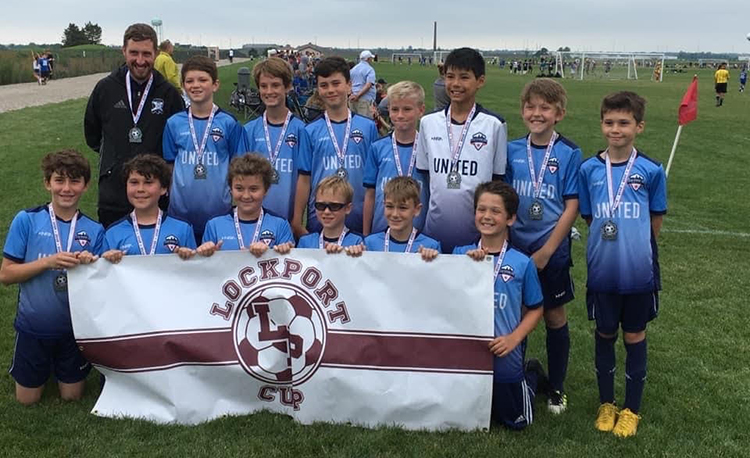
SCW: Do you get the sense that coaches are wanting to share experiences and talk about mental health more?
DA: "We’re seeing so much about player care right now. That’s absolutely fantastic.
"I want to see more of that and I think every club, from the lowest age level of grassroots football all the way up to the top professional level, should have a player care representative.
"But there’s nothing, from what I can see, for coaches right now. We had 104 responses to the survey - if I kept that open and got it out to a wider audience, I’m sure I could have got 1,000 responses to it.
"I do believe that coaches want to talk to each other. When I looked at the responses, the issues that coaches are having are far more common than uncommon.
"When we’re in that position where we have to help everybody else, it feels like you’re on an island by yourself, and there’s nobody that you can talk to.
“I’m hoping me being open about my story is going to help coaches feel they’re not on their own. That’s something I hope will help.
"When we talk about footballers that have spoken about their mental health, it’s a domino effect - it only takes one or two, and then everyone else will be more inclined to open up about their own experiences.”
"It’s trying to help coaches to enjoy their job but also be able to switch off..."
SCW: What can coaches start working into their practice to make sure they are supporting the coaches that they manage?
DA: "I’m learning as I’m going in how I look after my own staff and their mental health.
"When we’re in season, in the autumn and spring, it gets quite work-heavy out here in America. If I give my staff a Monday off, I’ll say: ’Turn your phone off. If I try to call you, I’ll leave you a voicemail. It shouldn’t be anything urgent’. It’s trying to persuade coaches to switch off because they never do.
“You don’t know when you’re going to get that parent email. They are going to email about everything. You have to manage that relationship as well as the player relationship.
"I would tell all my staff, ’once you clock off, you’re clocked off. If you get an email, park it and look at it tomorrow’.
“One of my favourite parts of the day is the half-hour before training starts, where I can go round and talk to the coaches and have a chat with them.
"All our coaches are from overseas - from Ireland, the UK, Brazil, Argentina - and I’ll ask them about how their family is back home.
“Just showing you care is probably the biggest thing. If they believe that you care and they believe they’re in a club that cares about them, I feel you’re going to get more value out of them and they’re going to feel better about themselves.
“They would be the two things: if your staff have time off, make sure to respect that boundary as a leader, and just check in on them and make sure they’re doing okay."
Related Files
Newsletter Sign Up
Coaches Testimonials

Gerald Kearney, Downtown Las Vegas Soccer Club

Paul Butler, Florida, USA

Rick Shields, Springboro, USA

Tony Green, Pierrefonds Titans, Quebec, Canada
Subscribe Today
Discover the simple way to become a more effective, more successful soccer coach
In a recent survey 89% of subscribers said Soccer Coach Weekly makes them more confident, 91% said Soccer Coach Weekly makes them a more effective coach and 93% said Soccer Coach Weekly makes them more inspired.
*includes 3 coaching manuals
Get Weekly Inspiration
All the latest techniques and approaches
Soccer Coach Weekly offers proven and easy to use soccer drills, coaching sessions, practice plans, small-sided games, warm-ups, training tips and advice.
We've been at the cutting edge of soccer coaching since we launched in 2007, creating resources for the grassroots youth coach, following best practice from around the world and insights from the professional game.
